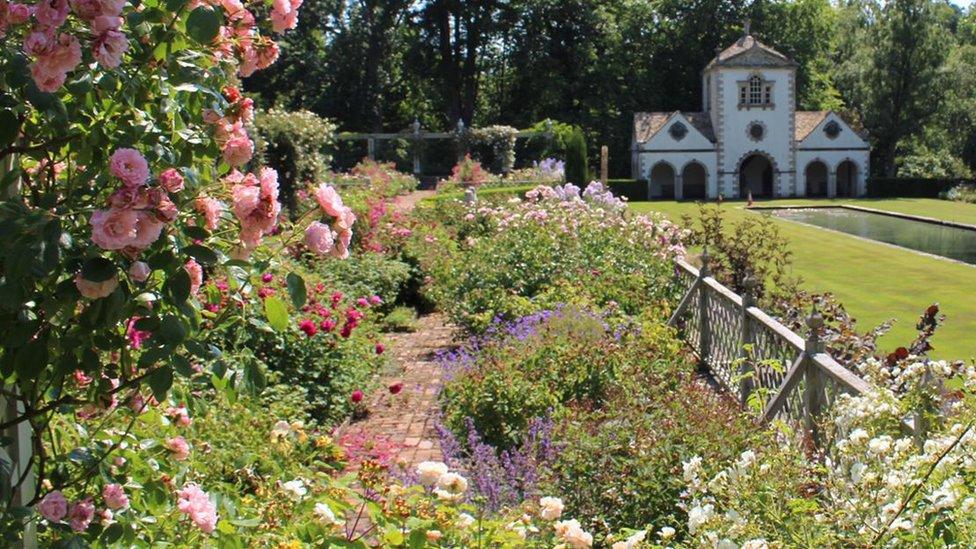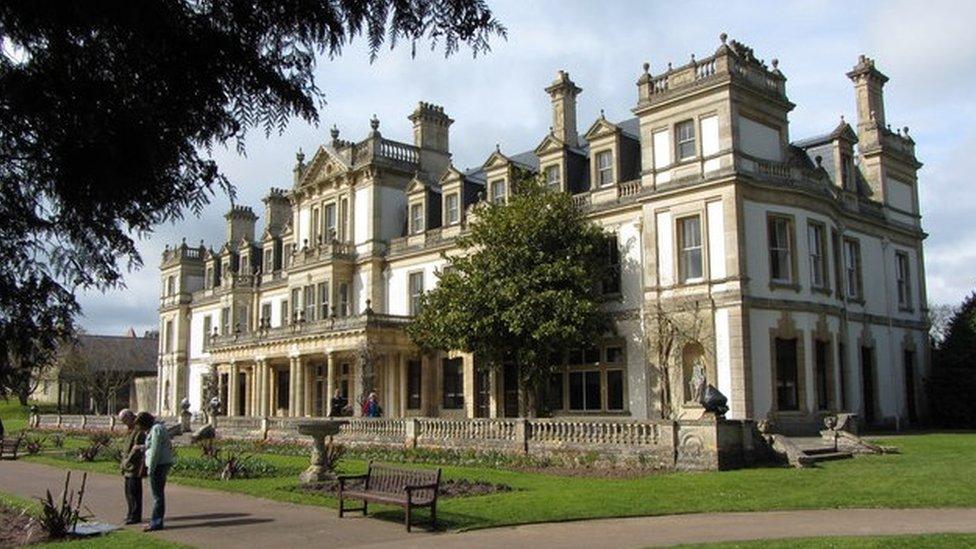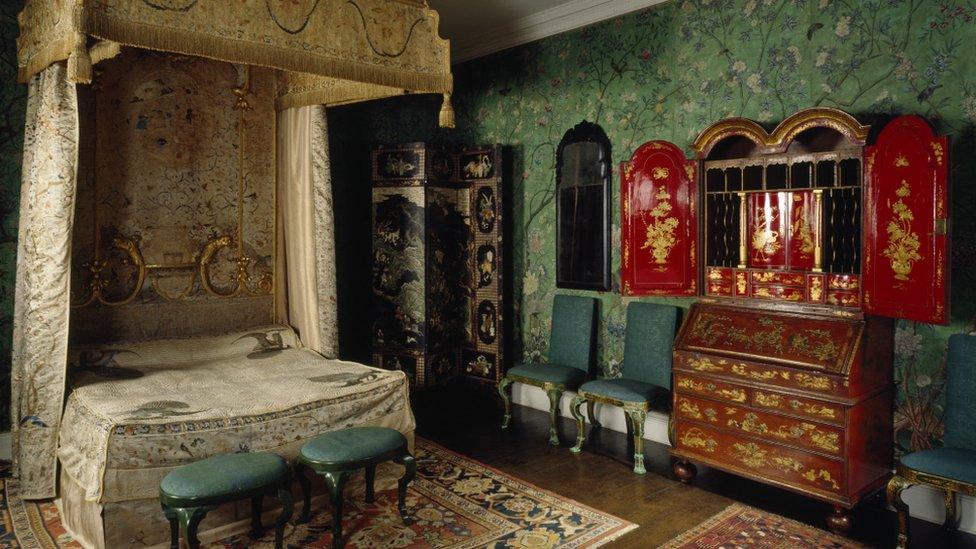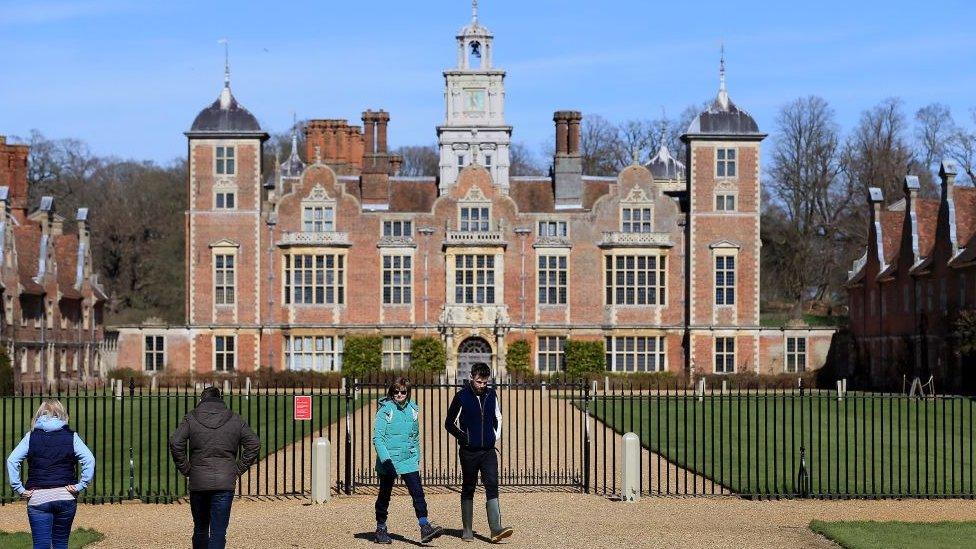Coronavirus: About 80 jobs at risk at Welsh National Trust sites
- Published

During lockdown just four gardeners have been responsible for the upkeep of Bodnant Garden
About 80 jobs at the National Trust in Wales could be lost due to the impact of the coronavirus pandemic.
Houses, gardens and shops managed by the conservation charity were closed in March as lockdown began.
Now despite being able to reopen some sites to visitors, the trust has warned many historic properties may have to remain closed for years.
Assistant director Rebecca Williams said the lack of income meant the trust had to make "very difficult decisions".
The UK's largest conservation charity, the National Trust looks after historic houses, gardens and hundreds of miles of coastline in Wales.
It had previously announced about 1,200 jobs would be cut across the charity as a result of anticipated losses of £200m.
In 2019, membership in Wales grew to more than 200,000, but Ms Williams said while members had been loyal, with cafes and properties closed for months the impact had been "big".
"We have to make very difficult decisions, to ensure the long-term security of the organisation," she said.
"We, like many organisations, have been impacted more than we could have anticipated."
Ms Williams said the trust had taken out loans, stopped recruitment and cut expenditure to minimise loss, but it had come to the point where job cuts were needed.
The Trust manages properties and gardens, including Penrhyn Castle, in Bangor, Erddig, in Wrexham, Dyffryn Gardens, near Cardiff, Powis Castle, in Welshpool, and Bodnant Garden, in Conwy.
It is also responsible for popular beauty spots including Pen-y-Fan and Sugar Loaf, in the Brecon Beacons, and miles of coastline in Pembrokeshire.
The Trust closed all its properties when lockdown was announced, and was forced to close all its car parks in line with rules at the end of March after people flocked to beauty spots despite travel restrictions.
While some properties have reopened inside in England and Northern Ireland, as part of a phased reopening, only gardens and parks have opened so far in Wales.

People can book to visit Dyffryn Gardens but the house remains closed
Ms Williams said some of the historic buildings would not be reopened for months if not years because of the impact, but it was too early to say which properties would be affected by the cuts.
"We're only a week into the consultation" she said.
"The implications for staff and properties and sites go hand in hand so it's really difficult to give definitive answers."
She added: "We hope members understand that we must make savings in the short term to ensure our long term sustainability."
With the threat of a potential second wave of coronavirus in the winter months, and concern over local lockdowns, the trust said the future was uncertain.
But Ms Williams said it was hoped the cuts would ensure the trust was "able to grow back", and make sure members could have access to nature if there was a second spike.
The Welsh Government had announced heritage sites would be given funding to deal with the impact of the pandemic, via a £53m fund for arts and culture.

Wrexham's Erddig Hall took four years to restore at the cost of £1m
But union Prospect said it "may be too little too late for hundreds of workers" at the National Trust.
General secretary Mike Clancy said: "At the moment there are no plans for National Trust to close whole properties but they are shutting 'unprofitable' shops and cafes and the worry is that it's only a matter of time.
"Once jobs are lost and assets are closed it is very hard to recover them.
"Access to our cultural heritage should be an essential part of society's recovery from the pandemic, and the government should be doing everything it can to protect it."
- Published2 May 2020

- Published9 June 2018

- Published20 October 2018

- Published15 April 2017
